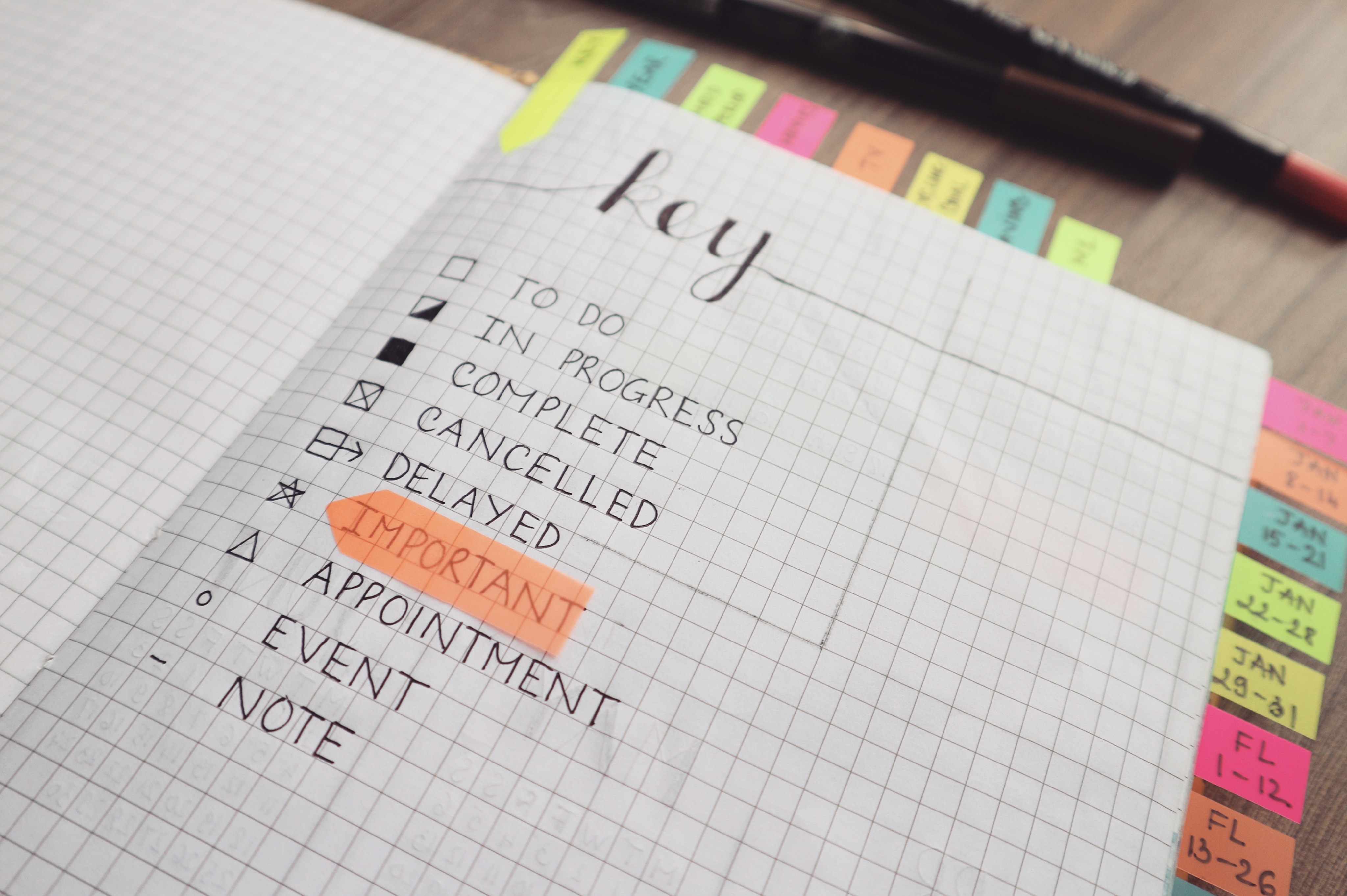For those looking for a creative and productive pastime, journaling may be the perfect new hobby. Journaling is a relaxing and therapeutic hobby that can be used to organize your thoughts and emotions creatively and cathartically.

What type of “journaling” should I do?
The type of journaling you do, greatly depends on what you would like to achieve with your writing. Do you want to organize your thoughts, keep records of what you do day to day, or simply express daily gratitude?
Consider what you would like to achieve with journaling and see our list of some of the most common journaling styles:
Diary
One of the most common forms of journaling, and a type of journaling that many people naturally turn-to is writing a diary. A diary is a narrative style of writing in which the author keeps a log of their day to day life. Diary writing is not just for teenage girls! There is great benefit for people of all ages to keep a record of the ins and outs of daily life. Diary writing helps people track and remember the details and emotions of the more minute details of daily life.
Prompt Journal
Many people have found that the toughest part of journaling is figuring out what to write about! Writing to a daily prompt can be a great way to spark creativity and dive into a topic that you may have not otherwise written about. There are daily prompt journals available which present daily prompts for the writer to stretch their imagination and think about their lives in a different way…
Some example prompt questions might be,
“What is your favorite childhood memory?”
“Who do you consider a role model?”
Writing daily to prompts like these can be an amazing way to gain insights on your own life while honing your writing abilities.

Freewriting
Freewriting or “stream of conscious” writing can be an eye-opening therapeutic tool for any writer. The unique writing style, is essentially putting pen-to-paper and writing whatever pops into your head.
Writers will start writing and not stop writing until they have written one full page. This is a therapeutic way to get those swirling thoughts out of your head and onto paper.
Don’t worry about “writing well” or creating quality content. Freewriting should be messy, sloppy and sometimes embarassing. Your freewriting pages can be gleaned later for creative content or simply crumpled up and thrown in the garbage! Freewriting is a great way to purge your thoughts and get a better idea of what’s going on in your head.
Upgrade your writing with quality journaling pens from Arteza.com here…
Bullet Journal
A bullet journal is a streamlined way to “track the past, organize the present, and plan for the future”. Bullet Journaling, is gaining in popularity due to it being quick in nature, and its utility as an organizational method.
Bullet Journaling uses a technique called rapid logging, in which you organize items quickly by utilizing various visual bullets to identify which type of task you have to accomplish.

For more information on the bullet journal method, check this video:
Dream Journal
Why do we dream? Why do our dreams fade so quickly?
Many people keep a journal near their beds and write their dreams down as soon as they wake up, in an effort to hold onto that dream world and interpret what their subconscious is displaying.
To use a dream journal it is important to make it as easy and quick as possible to jot down the content of your dreams. If you have to get out of bed, go to the bathroom and have a coffee before you write down your dream, it is likely that many details will have been forgotten.
Many people analyze their dreams and try to deduce meaning from them after journaling about them. There is great benefit to tracking your dreams in order to analyze and interpret common themes from our dreams. We can identify stressors and intentions from our waking lives that show up in various forms in our dreams.
Gratitude Journal
Keeping a gratitude journal can be one of the simplest and most beneficial forms of journaling when done correctly.
A gratitude journal can be as simple as writing down three thing everyday that you are grateful for. It is important to be thoughtful during the process and truly go below the surface and be detailed in your daily gratitude.
This type of journaling and digging through your memories of the day for reasons to be grateful has amazing benefits to your mental and emotional wellbeing.
We recommend writing in your gratitude journal at the end of the day as a way to close the day on a positive note. Recollecting on the positive parts of your daily life have been proven to reduce stress and can make you an optimist.
“In positive psychology research, gratitude is strongly and consistently associated with greater happiness. Gratitude helps people feel more positive emotions, relish good experiences, improve their health, deal with adversity, and build strong relationships.” – Harvard Medical School.
Did List
This type of journal is the antithis of a To-Do list. Rather than making a list of all the things you need to do during the day, and potentially being discouraged when you do not complete something on your list, we recommend keeping a “Did List”.
At the end of the day, write down all of the positive steps that you took towards completing your goal. This frames your list in a more positive and constructive way and is an optimists version of a To-Do list. A Did-List is more focused on constructive progress.
If at the end of the day there are not as many tasks on your Did-List as you would like, it is time to analyze your daily habits and see where there is room to take more steps towards completing your goals.

What are the benefits of keeping a journal?
Journaling has many benefits for a persons overall health and wellbeing.
Journaling has been used as a tool by therapists and counselors to alleviate stress, process emotions and help patients to organize their thoughts.
Used consistently and thoughtfully, journaling is a great tool to add to your own self-care tool belt.
A few of the main benefits of daily journaling include:
- Organize your thoughts and emotions
- Reduce stress and anxiety
- Improve your communication skills
- Boosts creativity
- Improves self-esteem
- Increase you problem solving ability
- Increase self-awareness and emotional intelligence
For more information and resources regarding the various types and benefits of journaling and some of our recommended journals, see our recommended links below…
Recommended Links:
- BulletJournal.com (For more in-depth info on the bullet journal method)


